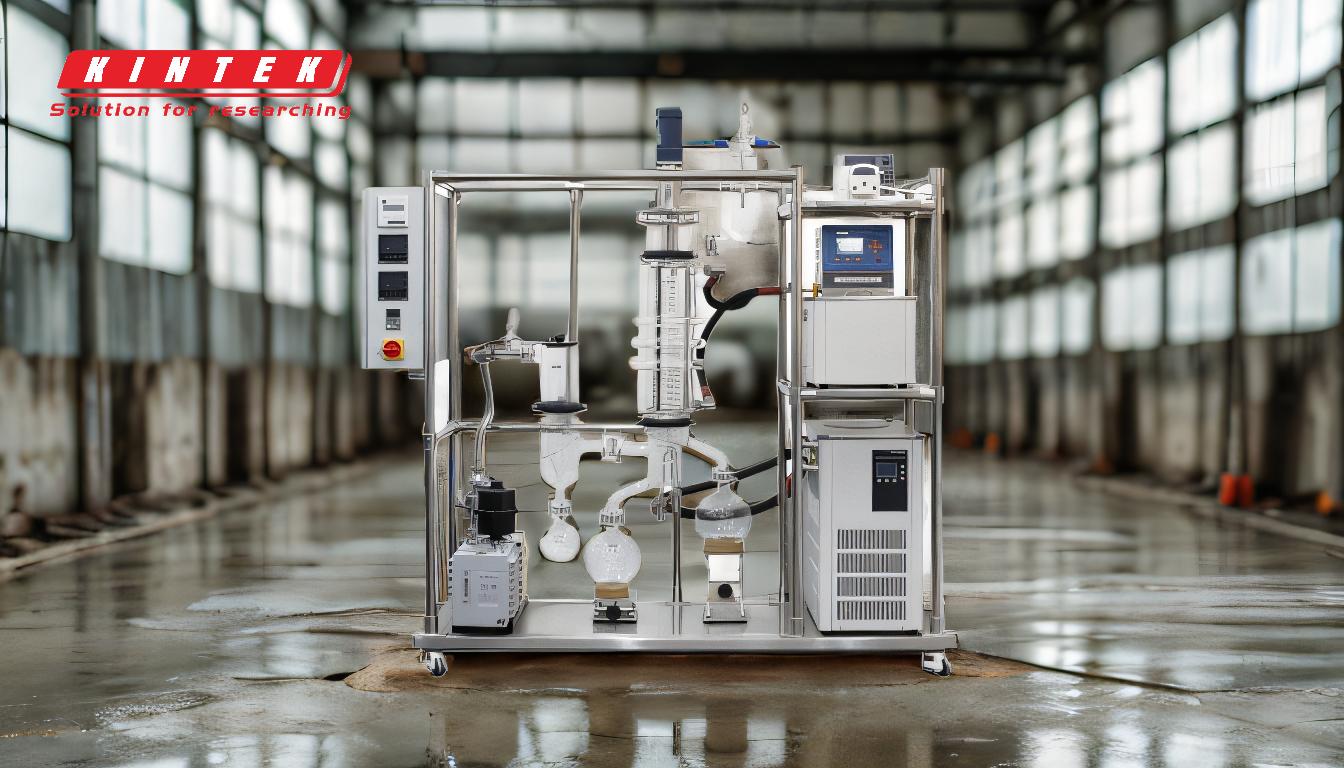During distillation, the boiling point of the liquid rises primarily because the composition of the liquid changes as more volatile components evaporate first. This leaves behind a higher concentration of less volatile components, which require higher temperatures to boil. The process is influenced by the principles of vapor-liquid equilibrium and the heat transfer dynamics within the distillation setup. As the distillation progresses, the remaining liquid becomes richer in less volatile substances, leading to an increase in the boiling point. This phenomenon is critical for achieving effective separation of components in distillation processes.
Key Points Explained:

-
Change in Liquid Composition:
- Initial Composition: At the start of distillation, the liquid mixture contains various components with different volatilities.
- Evaporation of Volatile Components: As heat is applied, the more volatile components (lower boiling points) evaporate first.
- Concentration of Less Volatile Components: The remaining liquid becomes increasingly concentrated with less volatile components (higher boiling points).
-
Vapor-Liquid Equilibrium:
- Equilibrium Shift: As the more volatile components are removed, the equilibrium between the liquid and vapor phases shifts.
- Increased Boiling Point: The new equilibrium requires a higher temperature to achieve the same vapor pressure, leading to a rise in the boiling point of the remaining liquid.
-
Heat Transfer Dynamics:
- Temperature Drop Reduction: With the boiling point rising, the temperature difference (ΔT) between the heat source and the boiling liquid decreases.
- Reduced Heat Transfer Rate: A smaller ΔT results in a lower rate of heat transfer, which can affect the efficiency of the distillation process.
-
Measurement and Monitoring:
- Thermometer Placement: A thermometer is typically placed at the top of the Y-adaptor to monitor the boiling point.
- Importance of Accurate Measurement: Accurate temperature measurement is crucial for determining the progress of distillation and ensuring the separation of components is effective.
-
Practical Implications:
- Control of Distillation Process: Understanding the rise in boiling point helps in controlling the distillation process to achieve the desired separation.
- Optimization of Heat Source: Adjustments to the heat source may be necessary to maintain an efficient rate of heat transfer as the boiling point increases.
By understanding these key points, one can better manage the distillation process to achieve efficient and effective separation of components, ensuring the desired outcomes in both laboratory and industrial settings.
Summary Table:
| Key Factor | Explanation |
|---|---|
| Change in Liquid Composition | More volatile components evaporate first, leaving less volatile components. |
| Vapor-Liquid Equilibrium | Equilibrium shifts, requiring higher temperatures to achieve vapor pressure. |
| Heat Transfer Dynamics | Rising boiling point reduces temperature difference, slowing heat transfer. |
| Measurement and Monitoring | Accurate temperature monitoring ensures effective separation of components. |
| Practical Implications | Understanding boiling point rise helps optimize distillation processes. |
Need help optimizing your distillation process? Contact our experts today for tailored solutions!













